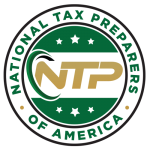A filing extension is an exemption that can be opted by either individual taxpayers or businesses that are unable to file a tax return by the due date. An explanation of the reason for the extension is not required. Some states accept IRS extensions, but others require taxpayers to file a separate state extension form.
Though tax extensions allow you longer time to file your taxes, it is often assumed that this might allow you a delay in the payment of the said taxes too, though that is not the case. Here are some basic points about Tax Extension to remember-
* An extension of time to file your return does not grant you any extension of time to pay your taxes. * You should estimate and pay any owed taxes by your regular deadline to help avoid possible penalties. * You must file your extension request no later than the regular due date of your return.
Even if you do not have enough money to pay the tax return to the authorities, you should always e-file a Tax Return or at least a Tax Extension. The potential IRS fees and penalties <www.efile.com/tax-penalties/> for not e-filing anything are on default a sum larger than on the taxes owed. Therefore, pay as much or as little as you can, but do e-file a Tax Extension or Return. The IRS will most likely add penalties and/or interest to the late payments but these will definitely be a smaller amount of money.
·How to file a Tax Extension
There are three ways for a taxpayer to request Tax extension to file an individual tax return:
1. Pay all or part of their estimated income tax due and indicate that the payment is for an extension. 2. File Form 4868 electronically by accessing IRS e-file <www.investopedia.com/terms/e/efile.asp> using a home computer or with the help of a tax professional who uses e-file 3. File a paper Form 4868 and enclose payment of the estimate of tax due.
Individual tax filers, regardless of income, need to bear the following points in mind while filling the tax extension form-
* Filing this form gives you a tax extension deadline of Oct. 15 to file a return. * To get the extension, you must estimate your tax liability on this form and should also pay any amount due.
Get an extension when you make a tax payment-
You can also get an extension by paying all or part of your estimated income tax due and indicate that the payment is for an extension using Direct Pay <www.irs.gov/payments/direct-pay>, the Electronic Federal Tax Payment System (EFTPS) <www.irs.gov/payments/eftps-the-electronic-federal-tax-payment-system>, or a credit or debit card <www.irs.gov/payments/pay-taxes-by-credit-or-debit-card>. This way you won’t have to file a separate extension form and you will receive a confirmation number for your records.
Filing a tax extension only gives you more time to file your tax returns but does nothing to reduce the tedious task of tax filing. Tax preparers like the professionals at the National Tax Preparers of America will help you file your tax extensions but also ensure accurate tax return filing without all its hassles for you.




